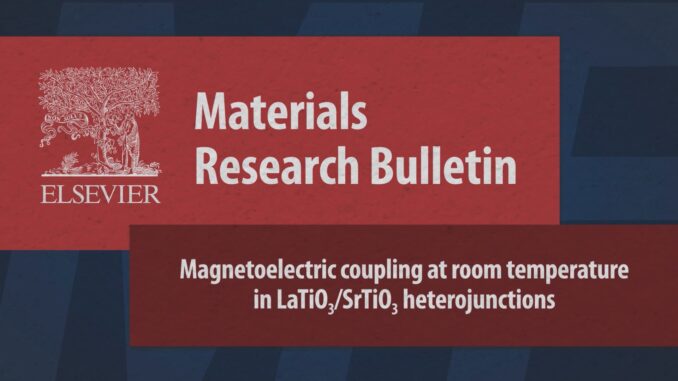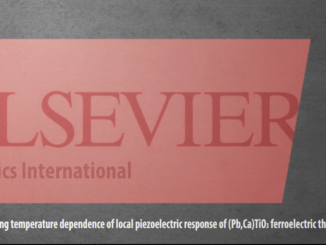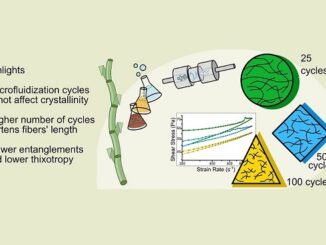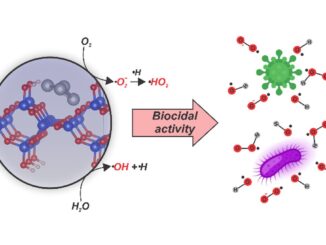
Magnetoelectric coupling at room temperature in LaTiO3/SrTiO3 heterojunctions
Abstract: This work focuses on LaTiO3 (LTO) thin films synthesized by the polymeric precursor method and deposited onto SrTiO3 (STO) substrates via spin coating. The results show interesting coexisting ferromagnetic (Mr≈2.85 emu/g) – ferroelectric (Pr≈18.5 μC/cm2) responses at room temperature. Magnetoelectric coupling can be observed under DC bias magnetic field (14 V/cm.Oe), and its dielectric constant is affected by the coupling between magnetic and electric dipoles at room temperature as well as oxygen octahedra distortion along direction a. Little film-substrate mismatch significantly influences the system dielectric properties. Our results suggest the possibility to induce ferromagnetic/ferroelectric phases in the LTO/STO heterojunctions using an electric/magnetic field, respectively, due to the magnetoelectric coupling. This study also helps comprehend oxygen vacancy dynamics when applying a tensile strain or an external electric field, which is fundamental for actuators, switches, magnetic field sensors, and new types of electronic memory devices.
Author(s): Simoes, A. Z.; Ortega, P. P.; Ramirez, M. A.; Moreno, H.; Aldao, C. M.; Ponce, M. A.; Moura, F.
Materials Research Bulletin
Published: June 2023, Volume 162, 112169
DOI: https://doi.org/10.1016/j.materresbull.2023.112169
CDMF
The CDMF, hosted at the Federal University of São Carlos (UFSCar), is one of the Research, Innovation and Dissemination Centers (RIDC) supported by the São Paulo State Research Support Foundation (Fapesp), and also receives investment from the National Council Scientific and Technological Development (CNPq), from the National Institute of Science and Technology of Materials in Nanotechnology (INCTMN).




